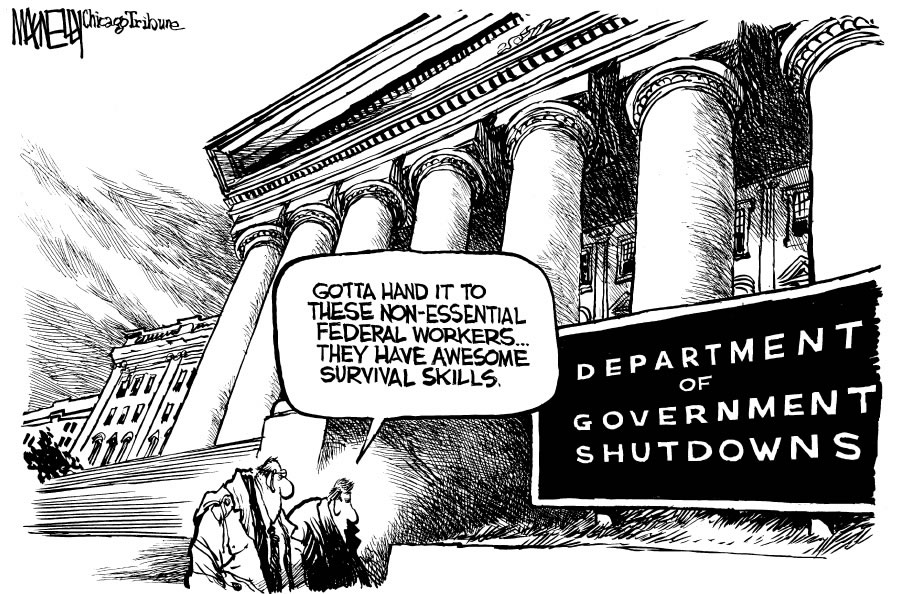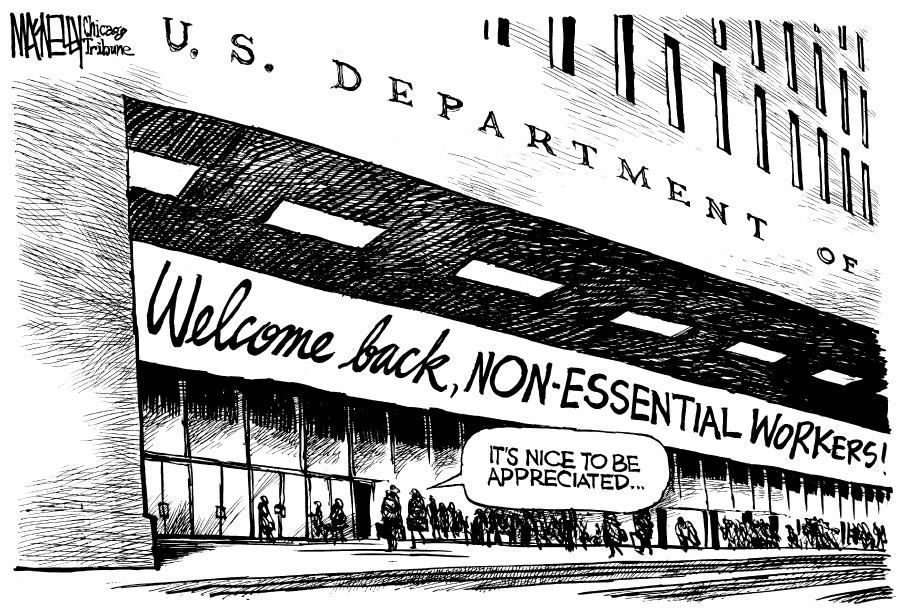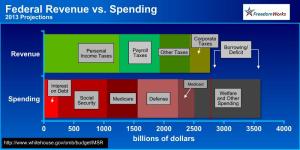In an ideal world, Congress would not raise the debt limit.
This would force – automatically and immediately – a balanced budget. More important, it would produce a meaningful reduction in the burden of government spending.
And contrary to hyperbole from defenders of the status quo, it doesn’t mean default since the federal government collects about ten times as much revenue as needed to pay interest on the debt.
But even though that seems like a fantasy outcome for people like me from the Cato Institute, I actually don’t think libertarians, fiscal conservatives, and other advocates of smaller government should make the debt limit a do-or-die battle.
As I say in this interview on Fox Business News, the “continuing resolution” is a much better vehicle.
Recommended
To elaborate, my concern is that the White House will be able to whip up too much hysteria on the debt limit, particularly since the media will serve as an echo chamber and Bernanke will act as a lackey for the White House.
And if the Fed Chairman is able to rattle Wall Street and cause a big drop in the stock market, it’s quite likely that Republicans will buckle rather than run the risk of being blamed for causing a financial calamity.
But the Obama Administration has less leverage when the “CR” expires on March 27. Like the debt limit, the continuing resolution is a must-pass piece of legislation. Heck, it’s even important since it’s the only way of funding the non-entitlement portions of the federal government for the rest of the 2013 fiscal year.
This is where advocates of small government should draw a line and demand fiscal restraint. They should pass a CR, but only after eliminating some egregious waste from the federal budget.
 Yes, the President can object to fiscal reforms. He can even veto such a bill. But the worst thing that happens under a stalemate is a “government shutdown.”
Yes, the President can object to fiscal reforms. He can even veto such a bill. But the worst thing that happens under a stalemate is a “government shutdown.”
And not even a real shutdown. Things that actually have some value, like the military and the air traffic control system, continue operating. All that happens is that “non-essential” programs, agencies, and department are shuttered. The Department of Housing and Urban Development is a good example.
 Let’s now think about leverage. Who will care more about reopening HUD and other non-essential parts of the government? The answer, quite obviously, is that bureaucrats and interest groups are the only ones who will care, and this means the pressure will be on the left.
Let’s now think about leverage. Who will care more about reopening HUD and other non-essential parts of the government? The answer, quite obviously, is that bureaucrats and interest groups are the only ones who will care, and this means the pressure will be on the left.
Indeed, this is exactly what happened in 1995 when Newt Gingrich and Bill Clinton had their famous shutdown battle. The Democrats were anxious to cut a deal to get the gravy train rolling again, and Republicans used that leverage to achieve a significant policy victory.
This doesn’t mean a CR fight and potential government shutdown is free of political risk. Indeed, Newt Gingrich lost popularity as a result of that fight. But that was probably more a reflection of his political style.
In any event, a CR battle definitely has less downside risk than a debt limit battle. So if folks on Capitol Hill actually want to fight to save the country from becoming Greece, why not pick the battle that’s easier to win?



